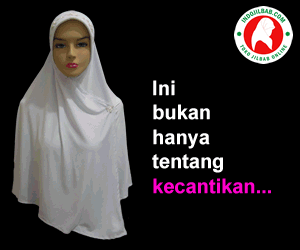Gus Dur, in Memoriam
Early Year
Abdurrahman Wahid, born Abdurrahman ad-Dakhil Wahid also known as Gus Dur, was born on the fourth day of the eighth month of the Islamic calendar in 1940 in Jombang, East Java to Abdul Wahid Hasyim and Siti Solichah.
He was the firstborn out of his five siblings, and Wahid was born into a very prestigious family in the East Java Muslim community. His paternal grandfather, Hasyim Asy'ari was the founder of Nahdlatul Ulama (NU) while his maternal grandfather, Bisri Syansuri was the first Muslim educator to introduce classes for women.
In 1944, Wahid moved from Jombang to Jakarta where his father was involved with the Consultative Council of Indonesian Muslims (Masyumi), an organization established by the Imperial Japanese Army which occupied Indonesia at the time. After the Indonesian Declaration of Independence on 17 August 1945, Wahid moved back to Jombang and remained there during the fight for independence from the Netherlands during the Indonesian National Revolution. At the end of the war in 1949, Wahid moved to Jakarta as his father had received appointment as Minister of Religious Affairs. Wahid went about his education in Jakarta, going to KRIS Primary School before moving to Matraman Perwari Primary School. Wahid was also encouraged to read non-Muslim books, magazines, and newspapers by his father to further broaden his horizons.
In 1954, Wahid began Junior High School. That year, he failed to graduate to the next year and was forced to repeat. His mother then made the decision to send Wahid to Yogyakarta to continue his education. In 1957, after graduating from Junior High School, Wahid moved to Magelang to begin Muslim Education at Pesantren (Muslim School) Tegalrejo. He completed the pesantren's course in two years instead of the usual four. In 1959, Wahid moved back to Jombang to Pesantren Tambakberas. There, while continuing his own education, Wahid also received his first job as a teacher and later on as headmaster of a madrasah affiliated with the Pesantren. Wahid also found employment as a journalist for magazines such as Horizon and Majalah Budaya Jaya.
Achievement
"Gus Dur" is the inspiration behind the Wahid Institute, a Jakarta-based nonprofit organization led by his daughter Yenni Wahid. He also served as patron, member of the board of directors and senior advisor to LibForAll ("Liberty for All") Foundation, whose mission it is to reduce religious extremism and discredit terrorism worldwide. Among numerous other writings, he is the author of a seminal article published in the Wall Street Journal on December 30, 2005 ("Right Islam vs. Wrong Islam") in which he called on "people of good will of every faith and nation" to unite to defeat the ideology of religious hatred that underlies and animates terrorism. Wahid discussed his suspicions regarding the involvement of the Indonesian government and the TNI (Indonesia's armed forces) in the terrorist bombings on Bali, in an interview in the documentary Inside Indonesia's War on Terrorism which as aired by SBS Dateline on October 12, 2005.
In September 2006, Wahid said that he was ready to contest the 2009 Presidential Election. He confirmed this in March 2008, at a rally of his National Awakening Party (PKB) in Banjarmasin, South Kalimantan. "Gus Dur" and Justice Sandra Day O’Connor, former Justice of the US Supreme Courtstated their concerns about recent developments in Malaysia that seem aimed at defaming opposition leader Anwar Ibrahim and threatening him with imprisonment in a manner which is reminiscent of the campaign to defame him in 1998. They stated there are plausible motives for some to manufacture a false case against him. They also mentioned that Anwar last year brought evidence to a royal commission that enabled it to conclude that there had been improper influence exerted on judicial appointments and more recently he brought forward evidence against the current attorney-general and the current inspector-general of police for the perversion of justice in his own prosecution in 1998–1999.
Death
Wahid personally asked to be brought to visit Rembang (situated in Central Java) and Jombang despite his bad health condition. He had previously been admitted into a hospital just before he left Jakarta. During his visit, his health condition worsened and Wahid was admitted into one of the hospitals in Jombang on 24 December 2009. Following his return the next day, he was admitted into Cipto Mangunkusumo Hospital in Central Jakartain order to undergo a dialysis. He underwent dental surgery on 28 December after complaining of toothache. Wahid died on 30 December at approximately 6:45 p.m. local time (UTC+7) after his condition deteriorated because of complications from kidney disorders, heart disease and diabetes. President Susilo Bambang Yudhoyono visited the hospital prior to his death. The Government held a state funeral for Wahid on 31 December, and flags will be flown at half-staff for seven days. He was buried next to the graves of his grandfather and parents at his birthplace, Jombang, East Java.
| great Thanks to Wikipedia for Source

